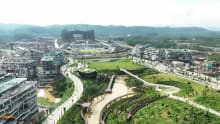What are the top workplace perks for Singaporeans?

Flexible work arrangements have evolved from being seen as a perk to becoming the expected norm for employees, as revealed in a recent report. A significant 65% of respondents expressed a strong desire for a flexible schedule that enables them to work during their most productive hours. Additionally, 60% of participants emphasised the importance of having the freedom to choose their work location, according to the report by Zoom. These preferences ranked second only to competitive pay and benefits, indicating their significance as highly sought-after workplace perks.
Flexible work is no longer a perk
Globally, survey data revealed that people no longer consider flexible work a perk. In fact, on average, 43% of knowledge workers surveyed say flexible work is a basic expectation.
The results confirm that flexible hours and schedules were of utmost importance when it comes to workplace benefits, outweighing other well-established perks like professional development opportunities and childcare resources.
Around 87% of Singaporeans agree that flexible work, with options to work remotely or flex their schedules, leads to increased happiness as employees.
These survey findings suggest the classic 9-5 model is no longer considered an effective way to work – no matter the stage of life the employee is in. Rather, employees prefer to have control over time and manage their own efficiency, determining how they work best while still meeting their employers’ expectations.
In a scenario where Singaporeans had to choose between two jobs with the same compensation and benefits packages, flexible hours and location ranked on par (73%) with professional development opportunities.
As professionals grapple with the challenge of juggling work, family responsibilities, and upskilling themselves, the significance of professional development remains paramount. This is also in line with the government’s national vision to reskill the workforce in order to seize new opportunities.
Organisations in Singapore should look to incorporate training and development initiatives into their flexible work models. This could mean putting in place an employee development roadmap catered to hybrid teams or leveraging conversational intelligence tools built into the daily routines of employees to uncover areas of improvement.
When it comes to ensuring happy workers, employee experience reigns supreme. Today’s economic uncertainty has amplified the importance of work perks, with 61% of Singaporeans agreeing that the significance of such perks has increased in the face of a challenging business climate.
Among all workplace advantages, flexible work options stand out. While the majority of those surveyed are satisfied with their current employee benefits, 78% say that they are more likely to work for a company that offers remote or flexible work if the other aspects of the job were about the same.
Many also think that remote work bears significant advantages over working in-person across various aspects. 61% appreciate the increased freedom that comes with remote work, allowing them to have more autonomy over their schedule. Another 57% value the opportunity to spend more quality time with their family, recognising the positive impact on work-life balance, with 56% saying they benefited from more balanced childcare commitments and 51% seeing improved work-life balance.
A total of 4,000 Knowledge Workers were surveyed across five countries, including Singapore.
“For employers, the last few years have accelerated the importance of transforming their business to foster better collaboration among employees – no matter if they are working from home, at an office, or in a different country. Flexibility is no longer a good-to-have for organisations, with employees in Singapore viewing flexible hours and location as deal breakers in this new reality. Embracing the change would mean investing in the right technology to help teams collaborate effectively, reimagine customer experience while building meaningful connections with partners - from anywhere,” said Ricky Kapur, Head of APAC at Zoom.
In 2022, the Ministry of Manpower released a set of guidelines for flexible work arrangements (FWAs), where organisations were strongly encouraged to continue offering FWAs and promote FWAs as a permanent feature in the workplace.
“Future of work discussions have since evolved beyond the ‘what if’ around flexible work, to the ‘what next’ as organisations navigate the shifting strategies for effective work collaboration in a hybrid environment,” Kapur added.
















